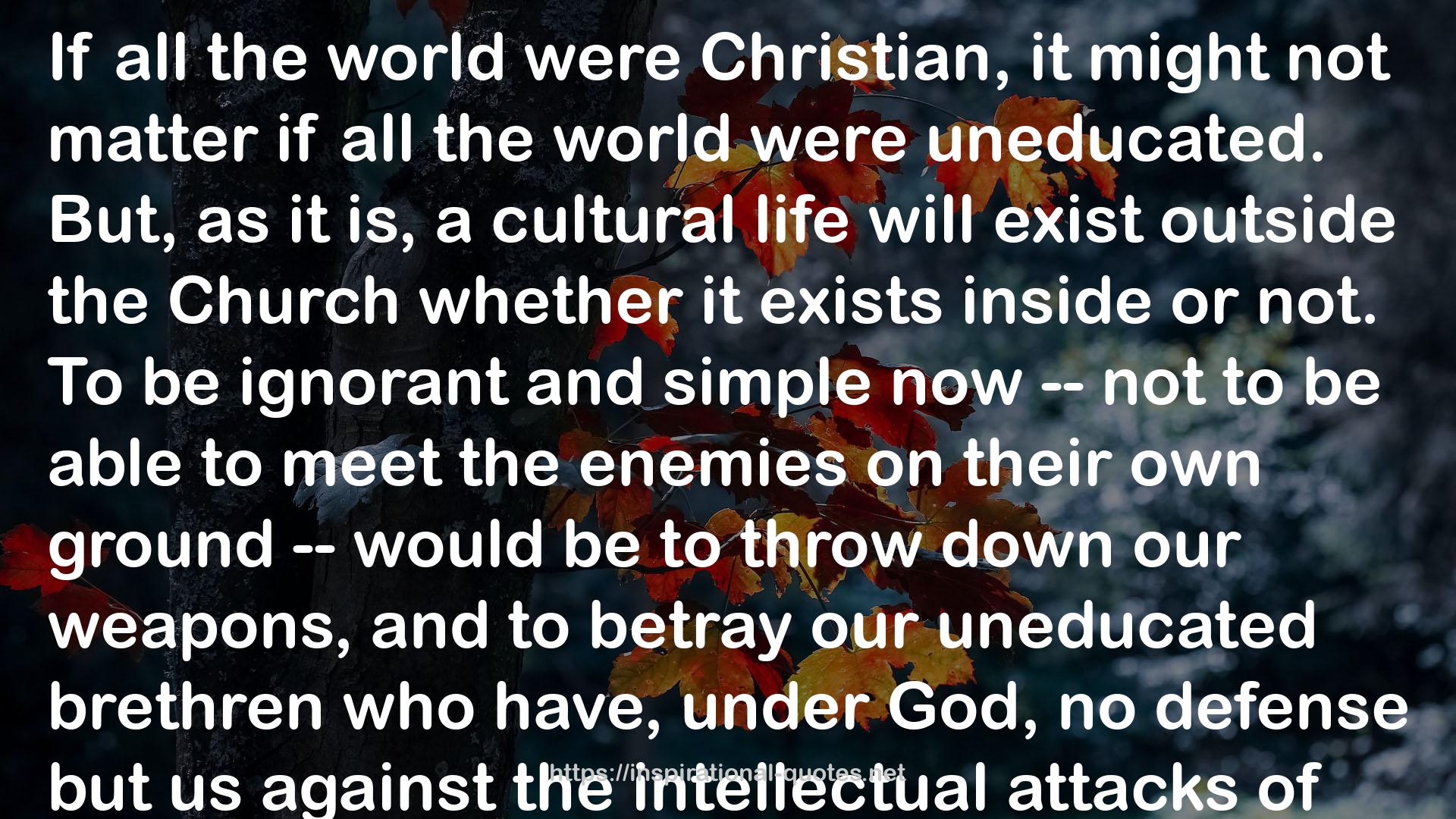" If all the world were Christian, it might not matter if all the world were uneducated. But, as it is, a cultural life will exist outside the Church whether it exists inside or not. To be ignorant and simple now -- not to be able to meet the enemies on their own ground -- would be to throw down our weapons, and to betray our uneducated brethren who have, under God, no defense but us against the intellectual attacks of the heathen. Good philosophy must exist, if for no other reason, because bad philosophy needs to be answered. The cool intellect must work not only against cool intellect on the other side, but against the muddy heathen mysticisms which deny intellect altogether. Most of all, perhaps we need intimate knowledge of the past. Not that the past has any magic about it, but because we cannot study the future, and yet need something to set against the present, to remind us that periods and that much which seems certain to the uneducated is merely temporary fashion. A man who has lived in many place is not likely to be deceived by the local errors of his native village: the scholar has lived in many times and is therefore in some degree immune form the great cataract of nonsense that pours from the press and the microphone of his own age. "
― C.S. Lewis , The Weight of Glory
